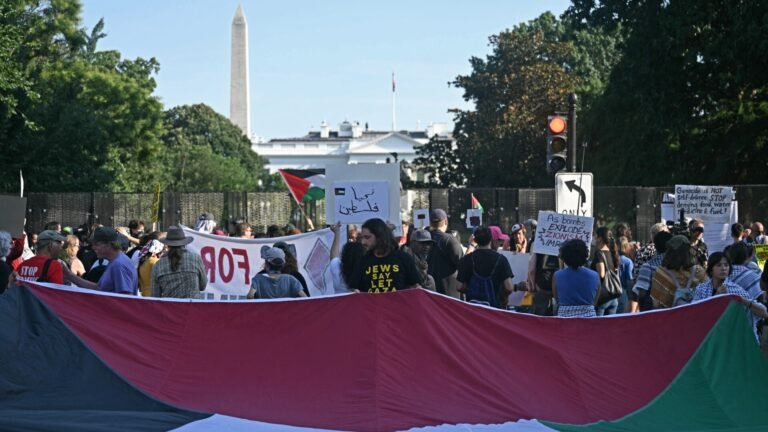A clause in the Federal Emergency Management Agency’s (Fema) guidelines threatening US states and territories that boycott Israel with the denial of federal funds for natural disaster preparation was discreetly removed from its terms and conditions directives on Monday after backlash.
The change in status came after media reports on Monday explained how funding was conditional on states following Department of Homeland Security (DHS) conditions laid out in April.
The Federal Emergency Management Agency (Fema) announced on Friday it was making nearly $1bn available to states to protect themselves from natural disasters, such as floods, tornadoes, hurricanes, and fires, as well as terrorist attacks and cyber disruptions.
However, before being removed, the clause said: “Discriminatory prohibited boycott means refusing to deal, cutting commercial relations, or otherwise limiting commercial relations specifically with Israeli companies or with companies doing business in or with Israel or authorized by, licensed by, or organized under the laws of Israel to do business,” according to 11 agency grant notices reviewed by Reuters.
DHS, which oversees Fema, reportedly removed this clause from section 17 on anti-discrimination under its terms and conditions.
New MEE newsletter: Jerusalem Dispatch
Sign up to get the latest insights and analysis on
Israel-Palestine, alongside Turkey Unpacked and other MEE newsletters
Fema had announced on Friday it was making nearly $1bn available to states to protect themselves from natural disasters, such as floods, tornadoes, hurricanes, and fires, as well as terrorist attacks and cyber disruptions. This $1bn allocation, which will apply to 15 different grant programmes, is part of the “Notices of Funding Opportunity amounting to more than $2.2 billion available to state, local, tribal and territorial governments to help them protect American citizens”, Fema states on its website.
DHS sent Middle East Eye a statement on Monday, saying: “There is no FEMA requirement tied to Israel in any current NOFO. No states have lost funding, and no new conditions have been imposed.
“FEMA grants remain governed by existing law and policy and not political litmus tests. DHS will enforce all anti-discrimination laws and policies, including as it relates to the BDS movement, which is expressly grounded in antisemitism. Those who engage in racial discrimination should not receive a single dollar of federal funding.”
BDS refers to the Palestinian-led Boycott, Divestment and Sanctions movement, which aims to “pressure Israel to comply with international law”.
Existing law
Although the clause has been removed, more than 30 US states already have laws that require “public entities to certify they do not and will not boycott Israel”.
However, public outcry over the worsening humanitarian conditions in Gaza has led to institutions and companies coming under increasing pressure to divest from Israeli and international companies investing in Israel.
The momentum for the BD movement in the US was spearheaded by students on college campuses across the country last year due to outrage over the war on Gaza, which to date has killed over 60,000 Palestinians, wounded over 100,000 and decimated the strips infrastructure.
While many institutions have refused pressure to divest from Israel, a handful of institutions like Union Theological Seminary have applied new investment screenings to divest from companies profiting from Israel’s war on Gaza.
San Francisco State University also agreed to disclose its investments quarterly and added new screening policies for investment decisions last year.
Following this agreement, San Francisco State University agreed to pull investments from three companies it claimed do not meet its human rights standards, including aerospace and defence company Lockheed Martin, stock positions in Italian defence company Leonardo, and US-based data analysis enterprise, Palantir Technologies.

